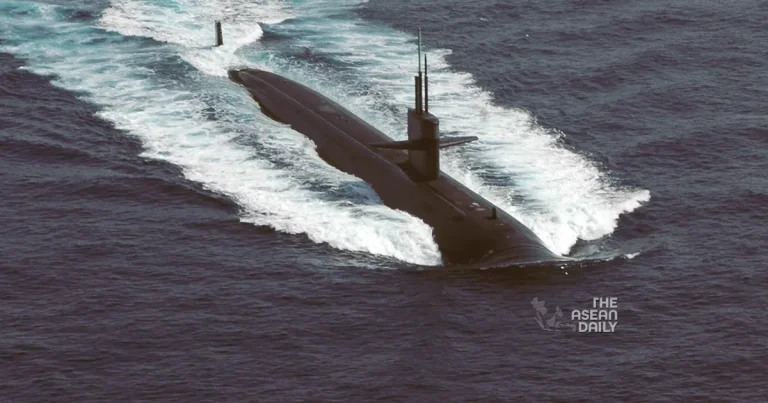4-7-2024 (JAKARTA) China has reportedly approached Indonesia with an offer to sell a half-constructed submarine originally intended for Thailand. This development, reported by the respected military and security publication Janes, adds a new layer of complexity to the already convoluted saga of Thailand’s submarine acquisition.
According to Janes, representatives from China State Shipbuilding Corporation (CSSC) made a presentation to Indonesia’s Ministry of Defence on 28 June. The Chinese delegation proposed that the S26T diesel-electric submarine, despite being midway through construction, could be tailored to meet the Indonesian navy’s specific requirements.
In a striking departure from the complications that have beset the Thai deal, CSSC officials assured Jakarta that their offer would not be subject to the same export restrictions that have plagued Bangkok’s procurement efforts. Most notably, they claimed that Indonesia could choose its preferred engine supplier, including the German firm MTU, whose involvement in the Thai project was scuppered by a European Union arms embargo on China.
The Chinese proposal also includes a modification package that would enable the S26T to deploy and launch Chinese-made YJ-18 torpedo tube-launched anti-ship cruise missiles, potentially enhancing the vessel’s offensive capabilities.
This unexpected offer comes against a backdrop of ongoing uncertainty surrounding Thailand’s submarine acquisition. Despite recent assertions by Thai Defence Minister Sutin Klungsang that negotiations were progressing, the deal has been mired in difficulties since its inception in 2017.
The original contract, valued at 13.5 billion baht (approximately $368 million), stipulated the inclusion of a German-made diesel engine. However, this arrangement fell through when Germany, citing EU restrictions, refused to supply the engine to China for incorporation into the vessel.
Since then, Beijing has been attempting to persuade Bangkok to accept a Chinese-built alternative without incurring penalties for breach of contract. The project, already delayed by the COVID-19 pandemic, has been in limbo due to this unresolved engine issue.




